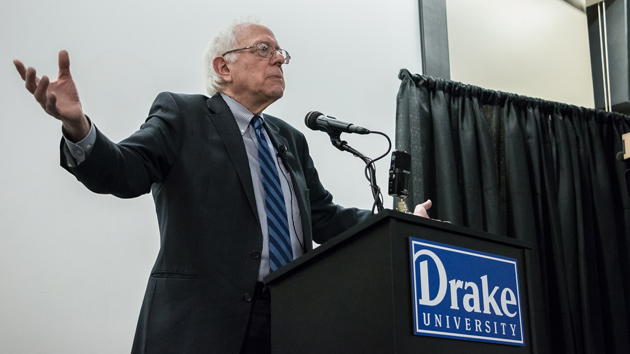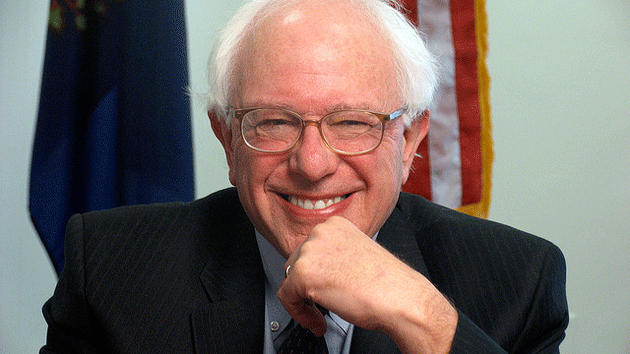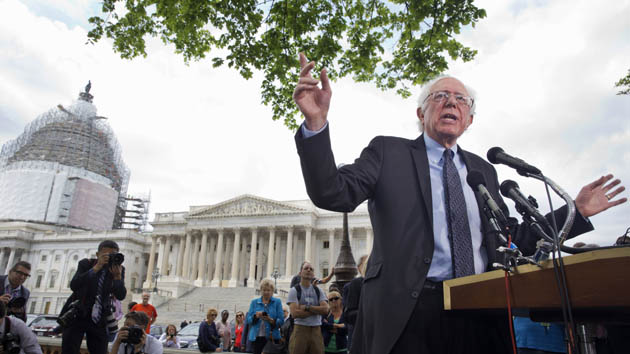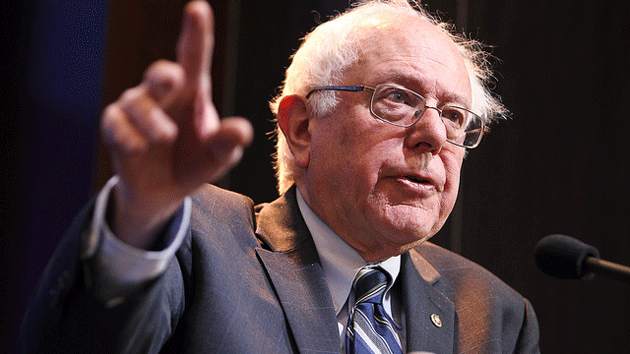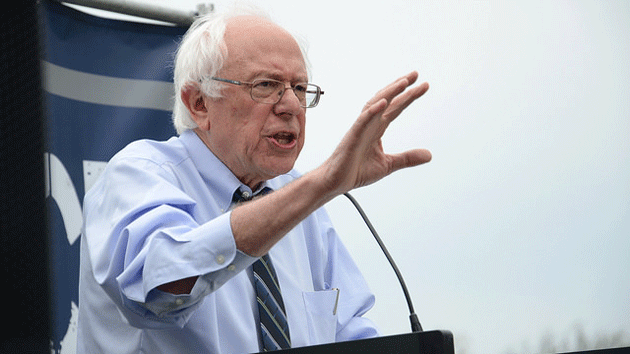
<a href="https://www.flickr.com/photos/afge/16603911673/in/photolist-rieotc-rXsTqd-seTjWb-rXrJ4N-rXsTzG-seZ7tx-rXsU2d-riektz-5UvpVU-riejJi-riejBK-seTgdu-rVGYex-seZbiX-seTgBA-seZ9Tn-scJZso-rXrDKs-rXzMNr-ri2NAq-ri2PCf-seTfAs-rVH1pV-scK6K3-ri2SZL-seZdrp-rXrG2w-ri2NDb-rVGULR-rXzQTe-rVGZrc-rXsPkQ-rXzQkR-rXsRCL-seThUW-seZ6T4-sf3482-rXrAU7-rVH1bi-seZdAH-rXsRVQ-ri2Qty-rXrB8o-rVH2ii-rXzPXg-sf2Yyn-seZaBB-scK2ZC-rieov6-seTjby">AFGE</a>/Flickr
Sen. Bernie Sanders of Vermont, a self-described socialist, is an extremely long shot to defeat Hillary Rodham Clinton in the Democratic presidential primary. Does that mean his views on key political issues are too radical for America’s voters? Not necessarily. Here’s how his policy positions actually fare in the polls:
socialism 
Sanders: Describes himself as a democratic socialist.
His fellow Americans: While only 31 percent of Americans react positively to the word “socialism,” just 50 percent view “capitalism” in favorable terms, according to a recent Pew survey. Among 18- to 29-year-olds, nearly half had a positive view of “socialism,” while only 47 percent viewed “capitalism” favorably.
income Taxes 
Sanders: Famously filibustered the 2010 extension of Bush tax cuts for wealthy Americans.
His fellow Americans: In a February poll, 68 percent of likely voters said wealthy households pay too little in federal taxes.
estate taxes ![]()
Sanders: Introduced the Responsible Estate Tax Act last year. If passed, it would raise top estate tax rates and expand the tax to include estates worth more than $3.5 million. (It currently only applies to those worth more than $5.4 million, which covers only 0.2 percent of American estates.)
His fellow Americans: Results vary, but Kevin Drum notes that the estate tax (conservatives call it the “death tax”) is generally unpopular.
Offshore tax havens ![]()
Sanders: Introduced legislation that would crack down on offshore tax havens by requiring American companies to pay the top corporate tax rate on profits held abroad.
His fellow Americans: Eighty-five percent of small business owners favor closing overseas tax loopholes entirely, while 68 percent of Americans believe “we should close tax loopholes for large corporations that ship jobs offshore.”
Campaign finance reform ![]()
Sanders: Advocates a constitutional amendment that would effectively prevent corporations from making political donations. Supports public funding of elections.
His fellow Americans: Most Americans believe that corporations should have at least some limited right to make political donations. Even so, in a 2013 Gallup poll, half of the respondents said they would personally vote for banning all political donations from individuals and private groups and shifting to a government-funded campaign finance system. Only 44 percent would oppose such a law.
Climate change ![]()
![]()
Sanders: Cosponsored the 2013 Climate Protection Act, which would tax carbon and methane emissions and rebate three-fifths of the revenue to citizens.
His fellow Americans: Sixty-four percent of Americans strongly or somewhat favor regulating greenhouse gas emissions from power plants, factories and cars, and requiring utilities to generate more power from low-carbon sources. However, only 34 percent of Americans support a carbon tax with a $500 rebate.
Health Care ![]()
Sanders: Advocates for a single-payer health care system.
His fellow Americans: A January 2015 poll found that just over 50 percent of likely voters support single-payer.
regulating wall street ![]()
Sanders: The big banks “are too powerful to be reformed,” Sanders says on his website. “They must be broken up.”
His fellow Americans: A recent poll by the Progressive Change Institute found that 58 percent of likely voters support “breaking up big banks like Citigroup.”
Education 
Sanders: Introduced legislation this month to make public college tuition free in the United States.
His fellow Americans: Sixty-three percent of likely voters support President Obama’s proposal to offer qualifying students two free years of community college. No recent polls have tested support for offering free tuition at four-year colleges and universities.
trade ![]()
Sanders: Opposes the Trans Pacific Partnership and similar trade deals.
His fellow Americans: Sixty-two percent of voters oppose fast-track authority for the TPP trade deal, but fewer Americans oppose the agreement itself. A 2014 Pew poll put support for the TPP among Americans at 55 percent.
Pay equity for women ![]()
Sanders: Supports a federal law mandating equal pay for equal work.
His fellow Americans: Most Americans agree that women face pay discrimination, but only about one-third favor addressing the problem via legislation.
Wages ![]()
Sanders: Supports raising the minimum wage to $15 an hour “over the next few years.”
His fellow Americans: Sixty-three percent of Americans support raising the minimum wage to $15 by 2020.
Unions ![]()
Sanders: Supports legislation allowing workers to form a union by signing pledge cards.
His fellow Americans: A Gallup poll conducted in 2009, when card check legislation was being debated in Congress, found that 53 percent of Americans “favor a new law that would make it easier for labor unions to organize workers.”
Social Services ![]()
Sanders: “Instead of cutting Social Security, Medicare, Medicaid, and nutrition programs,” Sanders writes on his website, “we should be expanding these programs.”
His fellow Americans: Some polls have found that majorities of voters want to expand Social Security. A poll conducted last year showed that even voters in red states want to expand Medicaid.
Thumbs-Up icon by Nick Holroyd/The Noun Project

